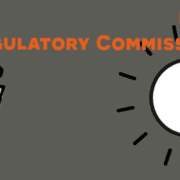But who is the Regulatory Commission of Alaska anyway?
If you pay an electric bill in Alaska, you may have noticed that our rates here are pretty high. In fact, they are the second highest in the country, coming in close behind Hawaii. Our high electric rates have a lot to do with the fact that we can’t share power in the same ways that states in the lower 48 can, but they also have a lot to do with our expensive fuel sources.
We have been living this way for years. Still, just a few weeks ago, Chugach Electric, our state’s largest electric utility, sent a proposal to the Regulatory Commission of Alaska to raise their consumer rates by 6%. After the Municipal Light and Power acquisition in 2018, Chugach was required to file a rate case to ensure they were charging both districts equally. The case has already been filed, so unfortunately, we cannot stop the rates from increasing. But how can we ensure that our rates don’t continue to increase in the future?
You may have noticed in energy headlines that we here in Alaska are heading nose-first into a gas crisis. The natural gas in the Cook Inlet is becoming too expensive to drill, and the solution put forward by many utilities is to import Liquid Natural Gas. Importing would, without a doubt, result in another rate increase. We must ensure that we are creating systems that conserve what cheap natural gas we have left and promote a fast transition to renewable energy. These systems can and should be part of this iteration of rate design at Chugach. We could introduce rates encouraging commercial and large-scale consumers to take energy efficiency measures or adopt renewable energy solutions. We could create incentive programs for rooftop solar that conserve our natural gas supply and bring us closer to a renewable energy transition. This is now out of Chugach’s hands and into the Regulatory Commission of Alaska, but who is the Regulatory Commission of Alaska anyway?
The Regulatory Commission of Alaska exists to regulate public utilities in Alaska. They are supposed to make sure our rates stay manageable, and our electricity is produced safely. They approved the rate increase that Aniak saw earlier this year and the BP-Hillcorp deal. When hearing new rate designs, they ensure that our rates adequately promote the conservation of resources used in electricity generation. These proposed rates have a way to go on that front, so we want them to hear about it.
The comment period for Chugach’s rate filing is open until August 4th. We need the Regulatory Commission to hear from Chugach ratepayers like you so they know we care about where our energy comes from. We care about creating rates that promote renewable energy, and we care about conserving resources to keep costs low for as long as possible. If you want to comment, you can follow this link and submit a comment on case TA544-8.
We want to keep our rates low and invest in the future of Alaska, not the quick fixes that push our money and our jobs out of the state. Let the Regulatory Commission know that we know who they are and we are watching what they do.
Together for a renewable future,
The Alaska Center


